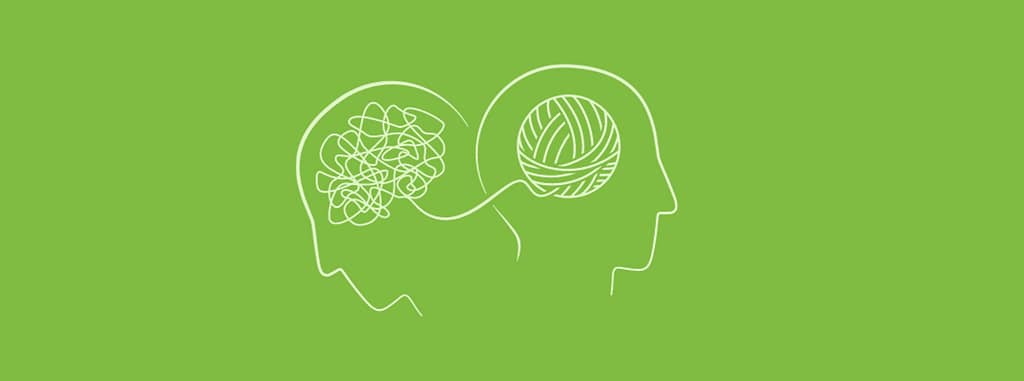Understanding climate change and mental health can feel like trying to solve a puzzle, especially for us Africans. Many people feel the effects of climate change but do not understand it, its causes, or know it as climate change. Additionally, mental health often carries a negative stigma, often associated with madness making it hard to discuss. Combining these two concepts might seem difficult, but let’s break it down.
Climate change is the negative changes in the earth due to human activities like the burning of fossil fuels, deforestation, and so on. It manifests as drought, flood, extreme heat, wildfires, and more seemingly natural disasters. On the flip side, the term ‘mental health’ refers to our emotional and psychological well-being. It affects how we think, feel, and act.
These two concepts are linked in various ways. Firstly, problems like air pollution and higher temperatures have been proven to increase the risk of neurological and psychiatric problems like strokes and dementia.
Secondly, research shows that people who have been directly impacted by the impacts of climate change like droughts and floods also often have PTSD or depression. Even the secondary effects of climate change, like displacement, hunger, poverty, job loss, and even overwhelming heat, can also affect our mental health.
Lastly, climate activists in Africa can relate to feelings of frustration and anger. Jennifer Uchendu explains this, by saying, “because of the injustice that is linked to realizing just how predisposed or vulnerable you are to a crisis that you don’t really have a direct hand in causing.”
As a result of climate change, people are experiencing environmental anxiety (eco-anxiety). In March of this year, we spoke to psychologists on climate-aware psychology and one of the speakers Dr. Iorfa acknowledged that while eco-anxiety is newly emerging as a field of study, it has been in existence for a long time with patients. To help psychology and other medical professionals properly understand and treat climate-induced anxiety, SustyVibes launched Anchor Training sessions.
About Anchor Training Sessions
Our anchor training sessions are an extension of The Eco Anxiety in Africa Project. The anchor sessions explore the link between climate change, environmental issues, and our mental well-being.
We recently completed the fourth anchor session in 2023, titled “Cultivating Psychological Resilience for Climate Change.” This session, led by mental health professionals Anthony Ojukwu and Antoinette Akinyi, outlined how healthcare professionals and individuals can strengthen their mental power to handle the challenges brought about by climate change.
Anthony explained how climate change can lead to trauma and how psychologists can practice trauma-aware therapeutic approaches like mindfulness, community support, and narrative therapy to address these issues. He affirmed that this approach is promising because many African cultures already practice versions of these approaches. “We love to tell stories,” he explained, and a problem shared is half solved.
Anthony also suggests teaching patients coping strategies to help them build resilience, including psychoeducation training. ”When we feel a headache”, he explained, “we understand the symptoms, what it means, and the possible solutions”. Through psychoeducation, patients are trained to understand what eco-anxiety is, what they can do, and to seek help as well. Other ways include promoting nature connection and integrating traditional medicine.
Both speakers explained that mental health professionals also need support and could face secondary trauma. They suggest self-care practices, maintaining healthy boundaries, developing a sense of community, training in coping strategies, peer support, and resilience training
We have seen clearly that communities are key in promoting mental health in the face of climate change, and Antoinette shared tips to help build community resilience. She explained that it’s key to build a sense of ownership and trust, and relationships. Providing accessible information and education. Creating opportunities for participation. Celebrating successes and sharing best practices. Empowering communities through capacity building.
The anchor learning series also focuses on practical case studies. During the session, we examined the case of flooding in Bayelsa, Nigeria in 2022. We saw a video where the flood victims recounted their experience: they were completely unprepared; they’ve lost properties, friends, and their homes. A secondary effect of the flooding in this case was an increase in theft. Many residents said they couldn’t go far from their houses for fear of losing more their other properties to theft, which caused a lot of mental distress.
Adedotun Esan, a Bayelsa native who led interventions in this region, shared their experience with us. “We know the theory, and now we need practical. It is important to note that community responses to climate challenges are dynamic and context-specific,” she said while presenting the case. She recommends community-based adaptation, early warning systems, and also community-driven mental health support.
To hear more from Adedotun and other speakers, listen to our anchor session here. We have another session in January 2024 where we’ll discuss Climate and Mental Health Interventions in Africa. Watch this space for more details.

